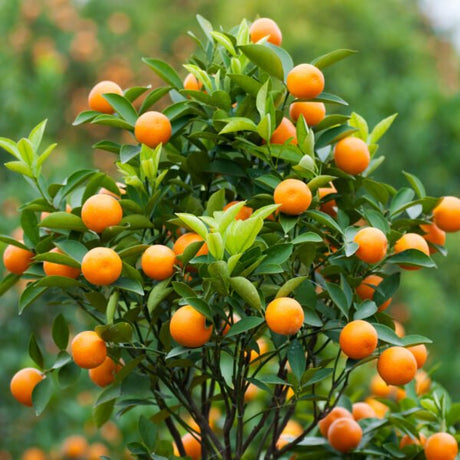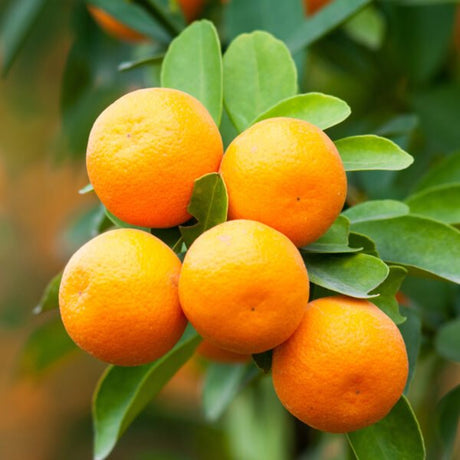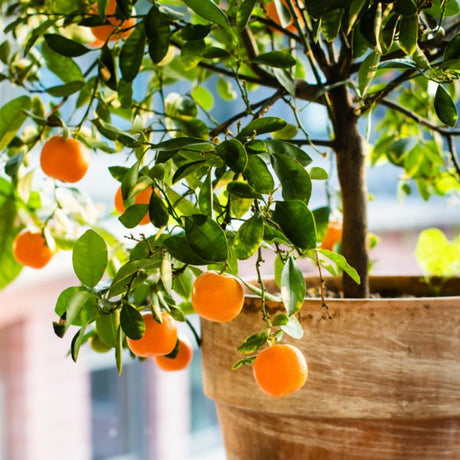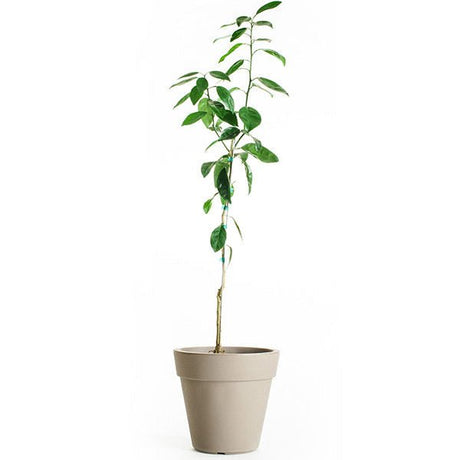- Up to 15% off
Improved Dwarf Meyer Lemon Trees
Sale price From $13919 Regular price $15999Unit price /Unavailable Improved Semi-Dwarf Meyer Lemon Tree
Regular price $17999Unit price /Unavailable- Up to 48% off
- Regular price From $17999Unit price /Unavailable
- Regular price From $17999Unit price /Unavailable
- Up to 19% off
- Up to 19% off
- Regular price From $12990Unit price /Unavailable
- Regular price $16999Unit price /Unavailable
48 in Resin Pumpkin Fiber Optic Statue
Regular price $62499Unit price /Unavailable- Regular price $2999Unit price /Unavailable
- Sold out
- Sold outRegular price From $12999Unit price /Unavailable
- Sold out
- Sold out
Dwarf Brown Select Satsuma Tree
Regular price $15999Unit price /Unavailable - Sold out
- Sold out
- Sold out
- Sold out
- Sold out
- Sold out
- Sold outRegular price $14999Unit price /Unavailable
- Sold outRegular price From $10499Unit price /Unavailable
- Regular price $14999Unit price /Unavailable
- Sold outRegular price $14999Unit price /Unavailable
- Sold out
- Sold outRegular price $12999Unit price /Unavailable
- Sold out
Vaniglia Sanguigno Blood Orange Tree
Regular price $12999Unit price /Unavailable - Sold outRegular price $12999Unit price /Unavailable
- Sold outRegular price $12999Unit price /Unavailable
- Sold outRegular price $12999Unit price /Unavailable
- Sold outRegular price $12999Unit price /Unavailable
Citrus Trees for Sale at Nature Hills Nursery
Have you fallen in love with the thought of buying your own Citrus tree? It's easy and satisfying to buy Lime trees, Lemon trees, Orange trees and specialty Citrus trees — including many new natural hybrid crosses — to produce your own healthy, homegrown fruit.
All you need to do is check out the Citrus trees for sale at Nature Hills Nursery, pick out your favorites, and place your order.
You can plant our container-grown Citrus trees any time of year. You can also place your order at any time. Although it’s OK to plant Citrus during the colder months, we will protect these tender plants during freezing winter temperatures and only ship when it's safely warm enough for them to travel.
Where Can You Grow Citrus Trees?

Citrus trees can be grown where winters are mild and the trees are not exposed to freezing temperatures, They can be grown in the ground as hard-working landscape trees. You'll get showy, fragrant white blooms, a beautiful harvest and an effective privacy screen. That’s three big benefits in one from a single tree.
But cold weather doesn't need to stop you from enjoying Lemon trees. Grow Lemon trees in pots outdoors near your kitchen and entertaining area.
Maybe your weather isn't suited for Citrus or you just don't have the space in your yard. Winterize them as indoor Citrus trees when it's freezing outside.
Citrus plants are perfectly adapted to being grown in a container. In fact, many Citrus trees perform amazingly well in containers. They also make such a fun accent plant for your patio.
Indoor/Outdoor Patio Citrus Plants Selection Guide
Why Choose Our Citrus Trees for Sale
Nature Hills Nursery has perfected the art of Citrus tree delivery for people across the country who want super-fresh ingredients. The cost of Citrus trees pays for itself over time, and nothing could be easier than online ordering to buy them.

Our extensive online catalog of Citrus trees for sale is unmatched by anyone in the business. We're proud of our long history of online plant sales since 2001. You’re apt to find the most desirable lime, orange or lemon tree for sale at any given time.
If you do spot the perfect orange, lemon or lime tree for sale, order it quickly. It won’t stick around for long.
You'll be thrilled with the high-quality plant material and sturdy packaging, along with the ability to track your online order delivery right to your doorstep.
Hungry for the fresh taste, incredible scent and unique décor of homegrown Citrus trees? You are in great company; these special trees are wildly popular.
Find the Perfect Orange, Lime or Lemon Tree for Sale, Along with Specialty Citrus
What would the world be without the wonderful selections of fruit classified as citrus? Humans have had a love affair with citrus for more than 1,000 years.
Citrus trees come in a variety of fruit types. These include Lemon, Lime, Orange, Mandarin, Grapefruit, Kumquat, Tangelos, Pummelos and Citrons. We also offer unique selections, such as the incredibly popular Australian Finger Lime.
With so many specialty Citrus trees coming out, we stay on top of the trends. Our inventory has expanded in recent years to include the latest and greatest Citrus cultivars to grow at home.
All of these Citrus selections appeal to a wide range of tastes and cultures. And the yummy-smelling white blooms of the flowering fruit trees add an incredible dimension to your landscape.
When Do Citrus Trees Bloom and Product Fruit?

Enjoy the fabulous fresh scent of the beautiful white Citrus flowers in springtime. You'll enjoy watching the hanging orbs color up over the summertime.
Citrus ripens mostly in the fall and winter, and most are harvested from October through March. Farmer lore says that after you harvest the last apple, you'll start harvesting the fruit from sub-tropical, evergreen Citrus trees.
Citrus trees have perfect, self-pollinating flowers. However, you'll have a bigger harvest with a second tree nearby.
Give indoor plants a gentle breeze from a fan on low setting during blooming. These wind-pollinated plants appreciate good air circulation.
You can also give Mother Nature a helping hand by using a dry paintbrush to gently swirl around the yellow pollen, and then daub it on the other blossoms. Do this daily without rinsing off your brush during bloom season.
Make the Most of Your Homegrown Citrus Harvest
Citrus are small to moderate-sized trees. Citrus trees bear fruit with a tough rind, known as the zest. The fruit is bold and colorful, and the flowers are bright white, delicate and fragrant.
Juice-laden Citrus fruits can be eaten fresh off the tree, squeezed for fresh juice and added to cocktail drinks. Zest the rind for desserts and savory dishes. Use the rind dried in scented potpourri or even preserved in marmalades or stored in oil.
The Home Garden is Ideal for a Citrus Tree
Citrus plays a dual role as a wonderful fresh fruit for culinary delights and a beautiful evergreen landscape plant. Give these carefree plants a sunny spot with well-drained soil.
Grown in the ground in mild climates, citrus works as a specimen tree, a screen tree or a perfect edible hedge. It's good to know that Citrus can be maintained to any height with regular pruning during the dormant season.
How to Grow Citrus Plants in Containers
Citrus is an important addition to any fruit-growers collection. Only a few varieties of Citrus trees tolerate freezing temperatures, and most should be protected from the cold.
For container culture, choose a pot with good drainage holes. Use a high-quality Citrus potting mix that is slightly acidic and a well-draining soil.
In USDA hardiness zones 3 through 7, you can typically enjoy your patio Citrus tree outside in the spring, summer, and early fall. Give them bright, direct sunlight, great drainage, and protection from high winds.
In late fall, move your Citrus plant to a protected location indoors. Let it stay there for the winter. When you bring Citrus trees inside, put them in the sunniest window you have.
Plenty of sunshine is key to enjoying a Citrus tree indoors. Keep your Citrus tree in front of a window or give it a boost with supplemental lighting. Many like to supplement the light indoors in winter with a LED plant light.
Citrus prefers to be grown on the dry side, so be very careful not to over-water these plants indoors. Be sure to allow the soil to dry out a bit between watering.
Increase the humidity in winter by misting the plants or using a humidifier to combat dry air indoors. Create a humid environment around your Citrus tree’s indoor winter growing area.
Care Tips for Lemon Trees in Pots
Transplanting Citrus in Containers
Here's the Right Way to Move Citrus Trees Indoors
How to Prune Citrus Trees
Have a small yard? Use high-density planting or try a time-tested pruning technique called espalier.
The long-lived Citrus tree makes a wonderful, espaliered plant against a flat wall or heavy-duty trellis structure. Lemons trees look great grown vertically as a popular treatment.
Enjoy the dark green foliage contrasted with bright yellow lemons just waiting to be harvested. Oranges, Mandarins and all other types of Citrus make great candidates for espaliers, too.
Read the #ProPlantTips blog on how to Espalier Fruit Trees
When to Prune Citrus and Orange Trees in High-Density Hedgerows or Three-in-One Plantings
Citrus in pots should be pruned before it really starts to wake up again for the new growing season. Try to keep the lower side shoots on the plants, as these are often the most productive limbs.
Tip prune the very ends off of the tall, vertical whips. Doing this will encourage that beneficial, bushy growth for more luscious fruit.
You can reduce the length of long branches, as well. This will encourage a more compact plant.
#ProPlantTips Resources for Homegrown Citrus Plants
How and When to Fertilize Citrus Trees
Troubleshooting Common Pests and Diseases of Citrus Trees
Nature Hills Nursery offers a wide selection of citrus trees for sale for your home edible landscape, small space garden, or balcony. Don’t forget Citrus trees make wonderful gifts. Order your favorite lime tree, lemon tree, orange tree or specialty Citrus tree today.
FAQS for Buying Citrus Trees and Bushes Online
Where can I grow Citrus trees successfully?
Where can I grow Citrus trees successfully?
Citrus trees thrive in warm, frost-free climates, typically USDA Zones 8–11. In colder regions, you can still grow Lemon, Lime, and Orange trees in containers and overwinter them indoors. With proper light, drainage, and protection from frost, Citrus trees perform beautifully in patios, sunrooms, and garden spaces across the country.
What are the best Citrus trees to grow in containers?
What are the best Citrus trees to grow in containers?
For container gardening, choose dwarf or naturally compact Citrus trees like Improved Meyer Lemon, Calamondin Orange, Kaffir Lime, or Australian Finger Lime. These varieties are perfect for patios and small-space gardens. They thrive in pots, offer fragrant blooms and flavorful fruit, and can be moved indoors during colder months.
When do Citrus trees bloom and produce fruit?
When do Citrus trees bloom and produce fruit?
Most Citrus trees bloom in spring with fragrant white flowers and begin fruiting by late summer through winter, depending on the variety. Lemons and Limes may produce year-round in ideal conditions. For best harvests, give your Citrus trees plenty of sunlight, regular watering, and help with indoor pollination if grown inside.
How do I care for Citrus trees indoors during winter?
How do I care for Citrus trees indoors during winter?
Bring your Citrus tree indoors before frost arrives. Place it in the brightest window possible, or supplement with LED grow lights. Maintain moderate watering, increase humidity with a humidifier or misting, and avoid drafts. Citrus prefers slightly dry soil indoors, so let the top inch of soil dry out before watering again.
Why should I buy Citrus trees from Nature Hills Nursery?
Why should I buy Citrus trees from Nature Hills Nursery?
Nature Hills Nursery offers a curated selection of premium-quality Citrus trees for sale, including Lime, Lemon, Orange, and rare hybrid varieties. Our trees arrive safely in protective packaging, ready to thrive in your landscape or container garden. With decades of shipping experience, growing guides, and a first-year guarantee, you’ll grow with confidence.

















































































































































